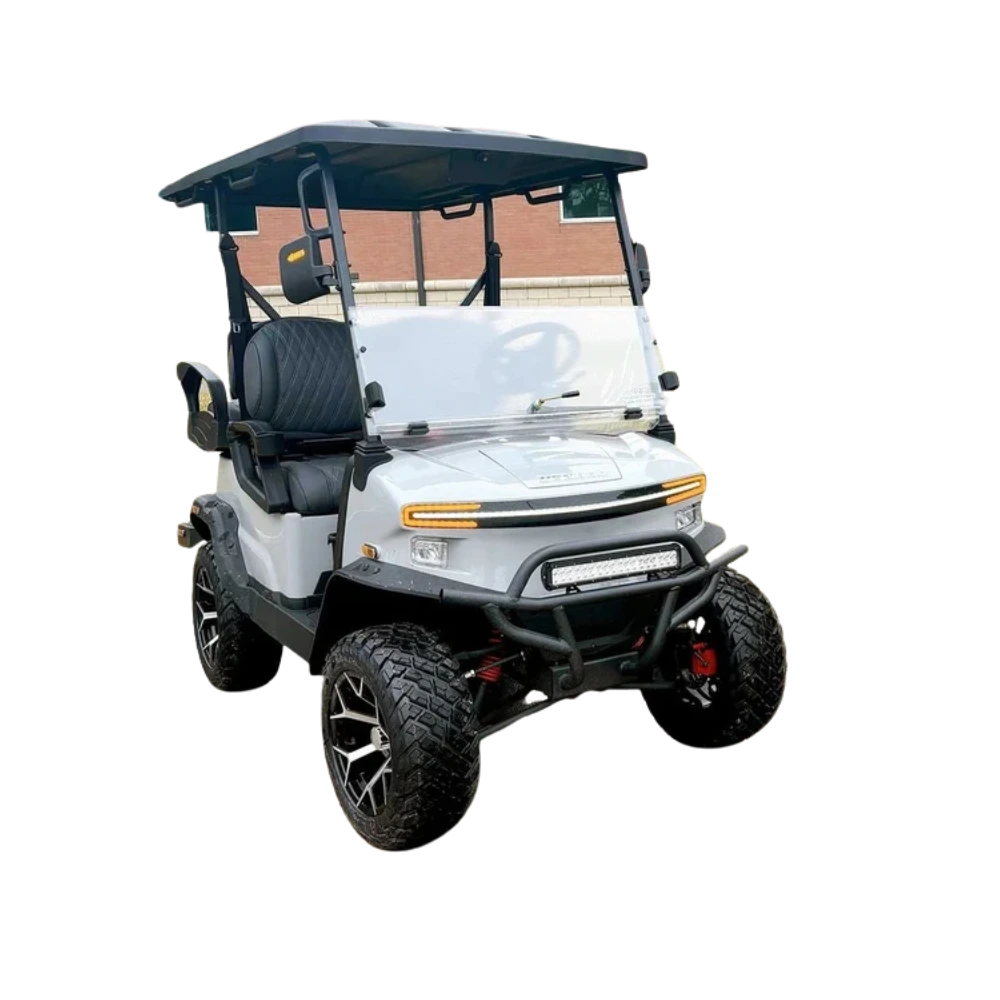When it comes to golf carts, the “Big Three” — Club Car, EZGO, and Yamaha — have long dominated the conversation. But lately, a new player has been making waves: Denago golf cart.
Some people swear by them, calling them the best value on the market. Others? Well, they say you’re better off sticking to the classics. So, after reading through tons of firsthand experiences from owners, mechanics, and dealers, here’s what I’ve gathered about Denago golf carts.


First Impressions: Why Denago Gets People Talking
One thing is clear: Denago knows how to catch your eye. The styling is modern, the features are extensive, and the price is significantly lower than that of a fully built-out Club Car or EZGO. Many buyers are drawn to the idea that, for around $8,000 to $9,000, you can purchase a street-legal, comfortable cart with impressive speed and additional features.
Some owners appreciate the smooth ride, brighter lights, and the flexibility of high- and low-speed options. One buyer even tuned their Denago to increase its speed from the factory’s 25 mph to 32 mph. For them, the value was unbeatable.
The Critics: Concerns About Quality and Longevity
However, not everyone is convinced. Experienced mechanics and long-time golf cart enthusiasts note that Denago is still a new brand in the U.S., with parts sourced mainly from China.
Common complaints include:
- Electronics that don’t match the quality of the big brands.
- Difficulty sourcing replacement parts quickly.
- Complicated suspension designs often fail to improve ride quality.
- A lack of the decades-long support network you get with Club Car or EZGO.
Some argue that minor issues that appear within the first few hundred miles can develop into significant problems later.

The Supporters: “Best Bang for Your Buck”
On the other hand, many owners are delighted with their purchase. They report:
- Smooth rides, even compared to new Club Cars.
- Strong braking power and comfort.
- Excellent customer service from Denago, with U.S.-based assembly now in Texas.
- Enjoy better features and styling for thousands less than our competitors.
One owner with 750 miles on their Denago said they’ve had no problems, even after off-roading in sand pits and crawling up ditches. Another described the cart as “way better than my friend’s Club Car for the price.”
The Value Debate: Price vs. Proven Track Record
This is where the conversation gets heated. Supporters argue that you can save $8,000–$10,000 compared to a similarly equipped cart from the Big Three, and still enjoy outstanding performance.
Critics counter that while you might save money upfront, the long-term costs — in repairs, downtime, and possible resale value — could make a used Club Car or EZGO the more brilliant buy.
It’s worth noting that some dealers claim Denagos and Evolutions are outselling Club Cars 15-to-1 in specific markets, primarily due to the price point and available options.
Final Thoughts: Should You Buy a Denago Golf Cart?
If you’re looking for a cart with excellent style, solid performance, and a lower price tag, Denago might be a wise choice — especially if you have a local dealer who can provide support.
But if you want a cart with a proven history of lasting 20+ years, easy-to-find parts, and a huge repair network, sticking with the Big Three might give you more peace of mind.
Bottom line: Denago is shaking up the market, and while it’s not perfect, it’s winning over buyers who value features and savings over decades-long brand legacy.
PRODUCTS RELATED

Hey, I’m Jake Rydell, a golf cart geek and e-scooter lover who’s obsessed with testing rideables. Whether you’re looking for the smoothest golf cart for the course or the fastest scooter for the city, I’ve likely tested it (and all the accessories too). I break things down in plain English—no fluff, no sales talk—just honest insights about speed, battery life, comfort, and tech. If it rolls, rides, or recharges, I’ve probably reviewed it!


